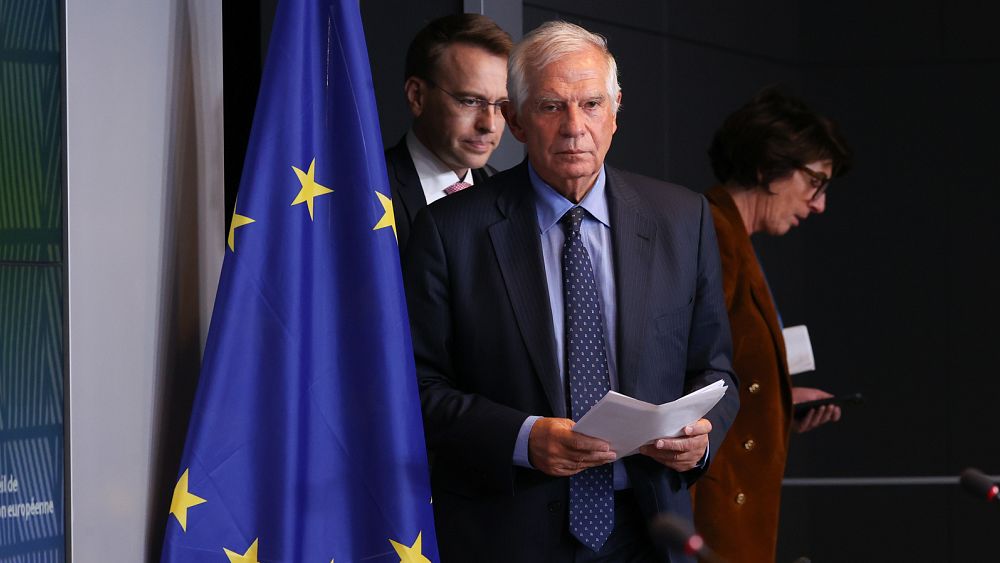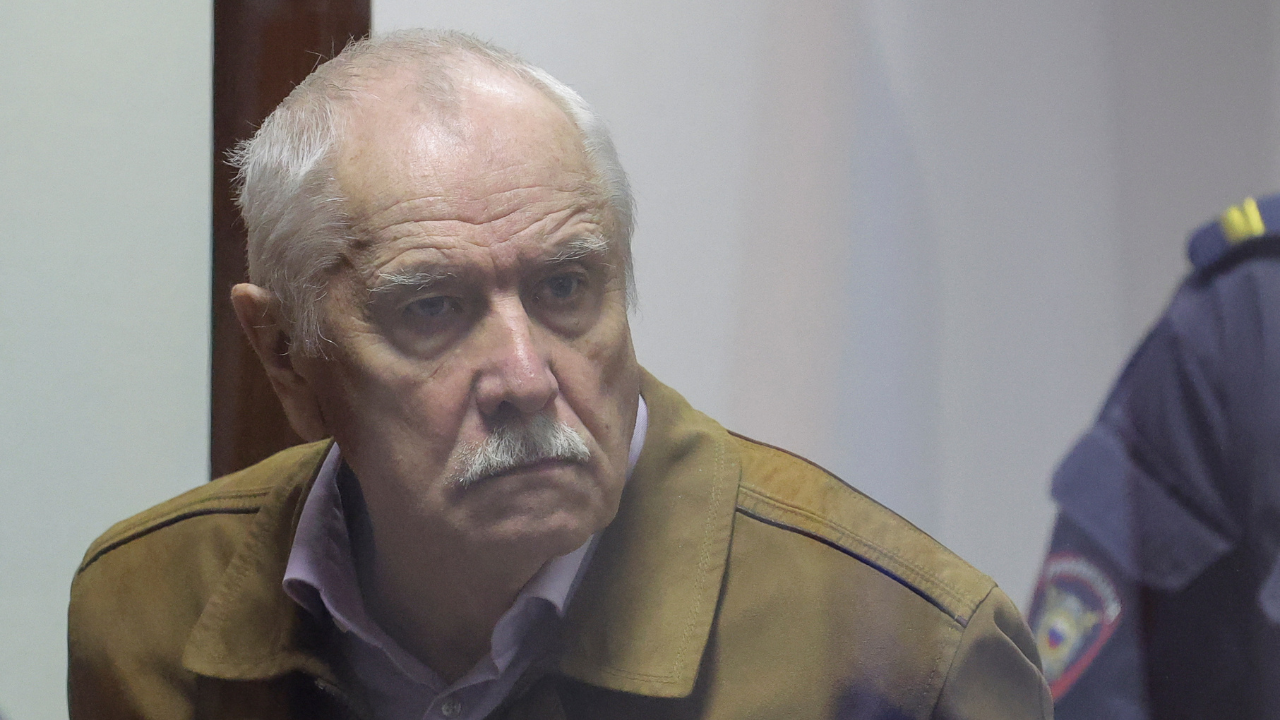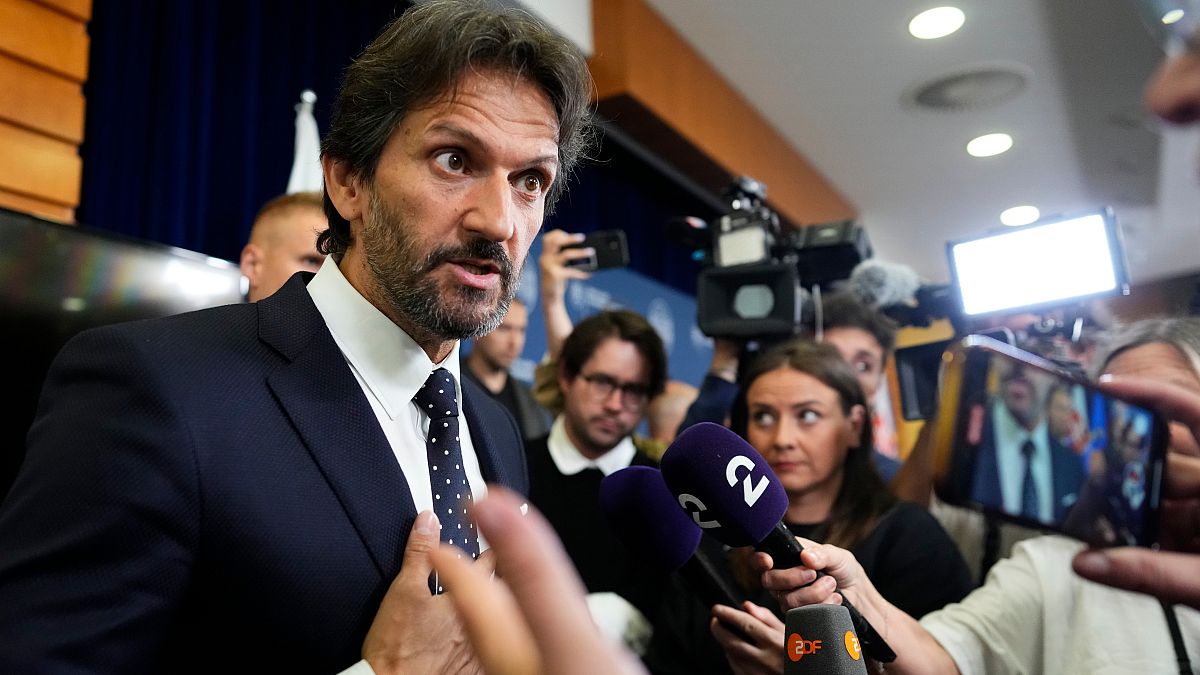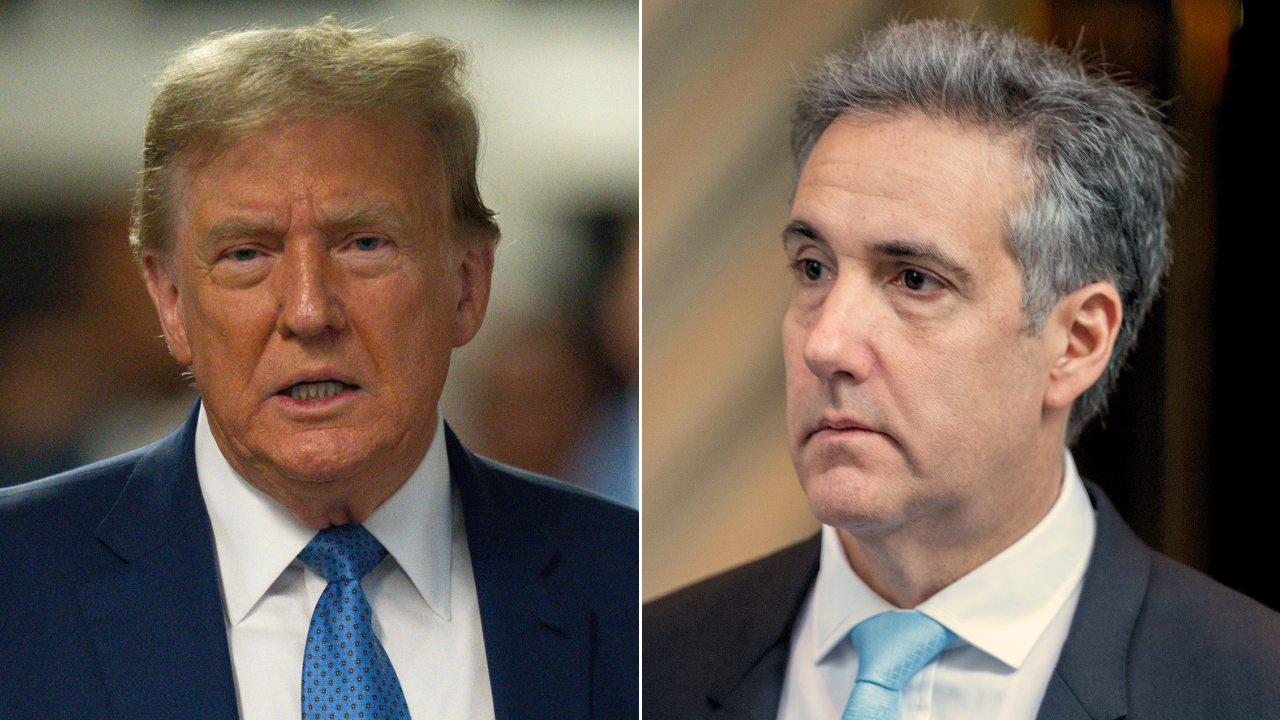World
EU ministers consider Gaza humanitarian ‘pause’ but divisions remain

European Union foreign ministers mulled calling for a “humanitarian pause” in Gaza during a meeting on Monday, but fell short of considering a full ceasefire in the war between Israel and Hamas.
The EU’s top diplomat Josep Borrell, who chaired the meeting in Luxembourg, said he “anticipated” that the bloc’s 27 heads of state could call for a “pause” in the conflict to ensure humanitarian aid reaches civilians in the Gaza strip when they meet for a summit later this week.
UN chief António Guterres first called for a “humanitarian ceasefire” to ease “epic human suffering” in Gaza last Wednesday. But Borrell says the EU’s possible call for a pause falls short of the UN’s ambitions for a full humanitarian ceasefire.
“A ceasefire is certainly much more than a pause,” Borrell said. “A pause, as the name suggests, is an interruption of something that would then continue. It is much less ambitious than a ceasefire, which means an agreement between both sides.”
“A pause can be agreed much quicker, and I believe the ministers consider that a pause is needed so that humanitarian aid can enter,” Borrell added.
EU leaders have not unanimously called for a cessation of hostilities – as states such as Russia and China have – instead proclaiming Israel’s legitimate right to defend itself in response to Hamas’ attack in which Israeli civilians were killed and captured.
Divisions between ministers had emerged earlier on Monday on what a potential humanitarian pause could look like. Austria’s Alexander Schallenberg and the Czech Republic’s Jan Lipavsky showed some scepticism, warning humanitarian supplies could fall into the hands of Hamas.
“We must put ourselves in the shoes of our Israeli friends and consider how we would react in Austria if we were targeted by a terrorist attack,” Schallenberg said, saying Israel was trying to avoid civilian deaths and warning before striking.
But the ministers of Luxembourg, Ireland and Slovenia explicitly called for an urgent humanitarian ceasefire to allow aid to enter Gaza.
On Monday, a third humanitarian convoy entered Gaza through the Rafah crossing on the Egyptian border, after 34 trucks were allowed to enter over the weekend.
The European Commission is tripling its humanitarian aid to Palestinians and has opened an “air bridge” to deliver supplies such as shelter items, medicines and hygiene kits to the Egypt-Gaza border.
Trickle of aid insufficient
But Borrell told reporters that the trickle of aid is “clearly not enough” given that approximately a hundred truckloads of supplies entered Gaza on a typical day before the conflict broke out.
“We’ve seen the first convoys but they are very small. Now, 20 trucks per day are arriving when it’s clear that the needs are much greater,” he said.
Crucially, none of the trucks currently entering Gaza contain fuel, amid Israeli fears it could end up in Hamas’ hands and be used to orchestrate further attacks. But humanitarian agencies warn hospitals and water desalination plants are reliant on fuel to provide life-saving aid to civilian populations.
“If we want people in Gaza to have access to water, we need to make sure fuel arrives,” Borrell said.
On Sunday, the United Nations warned its fuel supplies could run out dry in three days. The United Nations says the lives of 120 newborn babies in incubators are at risk as fuel runs out.
EU divisions remain
The European Union has come under fire for its incoherent response to the conflict and the ensuing humanitarian crisis. On Monday, European Commission President Ursula von der Leyen responded to a letter co-signed by over 800 EU staffers denouncing her one-sided stance on the conflict and warning that the bloc is “losing all credibility and the position as a fair, equitable and humanist broker.”
In her response, von der Leyen assured staff that “Europe will always be on the side of humanity and of human rights.”
“We are mourning the loss of every innocent life in this conflict – of all faiths and of all nationalities,” she said.
Borrell, who was quick to denounce Israel’s violation of international humanitarian law in its offensive in Gaza, and who is considered to have taken a more balanced stance on the conflict, said on Monday that the bloc has to be “careful in order to show the same concern for every civilian killed.”
EU foreign ministers also discussed the bloc’s long-term stance on the conflict, including its role in brokering a potential peace deal.
Borrell said Europe has to commit itself to “relaunching” the political process of establishing the so-called two-state solution, where an Israeli and Palestinian state could co-exist.
“We should not lose sight of the final objective,” Borrell said, while acknowledging the difficulty in reviving talks on a peaceful solution to the conflict, which have been stalled for 30 years since the Oslo peace accords.

World
Primo Cancelled at Freevee After ‘Short but Beautiful Run,’ Says Creator

ad
World
Russian physicist accused of treason sentenced to 14 years in prison

- Anatoly Maslov, a Russian physicist, has been sentenced to 14 years in prison for his alleged involvement in researching super-high flight speeds.
- This is the most recent in a series of treason cases that Russia has pursued against scientists researching super-high flight speeds.
- Maslov was a top scientist at the Khristianovich Institute of Theoretical and Applied Mechanics in the Siberian city of Novosibirsk.
Russia has brought a string of treason cases against scientists researching super-high flight speeds, an area that underpins its development of hypersonic missiles.
In the latest, physicist Anatoly Maslov was sentenced to 14 years on Tuesday.
President Vladimir Putin has boasted of Russia’s prowess in hypersonic missiles and Moscow has acknowledged using them in the Ukraine war.
RUSSIA’S MILITARY CLAIMS TO HAVE SHOT DOWN 10 U.S.-SUPPLIED MISSILES OVER CRIMEA AS BLINKEN VISITS UKRAINE
Here is a summary of the cases it has launched against scientists working in this sensitive field.
Russian physicist Anatoly Maslov, who was arrested in 2022 and accused of state treason, stands behind a glass wall of an enclosure for defendants before a court hearing in Saint Petersburg, Russia, on May 21, 2024. (REUTERS/Anton Vaganov)
ANATOLY MASLOV, ALEXANDER SHIPLYUK AND VALERY ZVEGINTSEV
All three were top scientists at the Khristianovich Institute of Theoretical and Applied Mechanics (ITAM) in the Siberian city of Novosibirsk. Maslov and Shiplyuk were arrested in 2022, and Zvegintsev the following year. In a rare open letter a year ago, colleagues said the three men were innocent and the cases against them were damaging Russian science. Details of the charges are secret, but two people familiar with Shiplyuk’s case have told Reuters he is accused of betraying secrets to China by handing over classified material at a conference there in 2017.
VLADISLAV GALKIN
Galkin worked at another Siberian university and had co-authored papers with Zvegintsev and Shiplyuk. His arrest was reported in December 2023, but BBC Russian said he was actually detained in April of that year. It quoted his wife as saying she had told their grandchildren he was on a business trip.
ALEXANDER KURANOV
Kuranov was handed a seven-year jail sentence for treason last month, after being accused of passing state secrets to foreign nationals. Maslov’s lawyer, without naming Kuranov, said the case against Maslov had been based on testimony against him from another person who got a seven-year term. At the time of his arrest in 2021, Kuranov was the general director of the St Petersburg-based Hypersonic Systems Research Facility, where he oversaw work on a new version of a Soviet-era hypersonic aircraft dubbed Ayaks.
ANATOLY GUBANOV AND VALERY GOLUBKIN
Both worked at TsAGI, the Central Aerohydrodynamic Institute based in Zhukovsky, near Moscow, where Gubanov was Golubkin’s boss.
Gubanov, arrested in December 2020, had been working on an international project called HEXAFLY-INT to develop a hypersonic civil aircraft powered by hydrogen fuel. In October 2023 he was found guilty of handing over state secrets and sentenced to 12 years.
Golubkin, arrested in April 2021, was jailed for 12 years in June 2023 after being found guilty of passing secrets to a NATO member state. However, the verdict was annulled last month and a new trial ordered.
VIKTOR KUDRYAVTSEV, ROMAN KOVALYOV AND VLADIMIR LAPYGIN
All three worked at TsNIIMash, a rocket and spacecraft center near Moscow which is a scientific subsidiary of space agency Roscosmos. Kudryavtsev was arrested on a treason charge in 2018, suspected of transferring secret information to a Belgian institute. He died of lung cancer in 2021, before the case came to trial.
Kovalyov, who worked with Kudryavtsev at TsNIIMash, was sentenced to seven years for treason in June 2020. He died of cancer in 2022.
Lapygin was convicted of treason in 2016 and sentenced to seven years, but was freed early in 2020.
World
Who is Ali Bagheri Kani, Iran’s acting foreign minister?

Ali Bagheri Kani, a 57-year-old political insider with a history of serving in Iran’s diplomatic and security apparatuses, has been appointed interim foreign minister following the death of the man he is replacing, Hossein Amirabdollahian.
Amirabdollahian died on Sunday in a helicopter crash in Iran’s mountainous East Azerbaijan province, alongside President Ebrahim Raisi and several other officials and staff.
Bagheri Kani is the logical choice to come in as acting foreign minister – he had been Amirabdollahian’s deputy for political affairs.
The new foreign minister was born in a village just north of the capital Tehran to a conservative family that helped establish and strengthen Iran.
Family members have had prominent roles in the country. His father, the now 98-year-old prominent cleric Mohammad-Bagher Bagheri Kani, is a former member of parliament and the Assembly of Experts, the clerical body tasked with appointing a successor to the 85-year-old Supreme Leader Ayatollah Ali Khamenei.
And his uncle, Mohammad Reza Mahdavi Kani, was a former acting prime minister and interior minister, who led the Assembly of Experts from 2010 until his death in 2014. The new acting foreign minister’s brother, Mesbah al-Hoda Bagheri Kani, is a son-in-law of Supreme Leader Ayatollah Ali Khamenei.
Bagheri Kani studied economics at Tehran’s Imam Sadiq University, a school that has produced many members of Iran’s government, and which used to be run by his father.
Close ally of Jalili
He started his diplomatic career at a regional desk of the Iranian Ministry of Foreign Affairs, and also did a brief stint as political analyst at state television.
He has been a longtime close associate of Saeed Jalili, a key ultraconservative figure within the establishment who now holds a senior position on Iran’s Supreme National Security Council (SNSC).
Like Jalili, Bagheri Kani’s name is mostly associated with the years-long talks surrounding Iran’s nuclear programme, and he served as Jalili’s deputy on the SNSC shortly after the latter was appointed secretary of the body in 2007, at a time of heightened tensions over the nuclear issue.
As the SNSC was at the time in charge of handling the nuclear file, Bagheri Kani also became a senior figure in the country’s negotiating team and held meetings with US and European officials.
Those negotiations ultimately fell through, and Iran was slapped with a series of harsh international sanctions.
Jalili eventually went on to run for president in 2013, wishing to put forward his pessimistic view towards any nuclear deal with the West. Bagheri Kani managed his election campaign, which failed.
The victory that year of the centrist Hassan Rouhani, who promised the lifting of sanctions and an end to Iran’s isolation, led Jalili and Bagheri Kani to become relatively sidelined.
Rouhani’s administration was able to agree on a nuclear deal, known formally as the Joint Comprehensive Plan of Action (JCPOA) with Western countries in 2015, but it did not last long, as US President Donald Trump withdrew from it unilaterally in 2018, and imposed even harder sanctions on Iran.
Aligned with Raisi
In 2019, Raisi, who ran for president in 2017 in an unsuccessful attempt to prevent Rouhani’s re-election, was appointed as the judiciary chief by Khamenei. It came as sanctions were taking their toll on the economy, and weakening the power of reformists and centrists.
Raisi brought Bagheri Kani into his team, appointing him as the head of international affairs of the judiciary. Bagheri Kani was also made the head of the human rights council of the judiciary, replacing Mohammad Javad Larijani, who had held the position for 14 years.
By the time President Joe Biden’s administration was in power in the US and Raisi had eventually won the Iranian presidency at the second attempt in 2021, efforts were under way to restore the JCPOA to reduce tensions.
Just before European-mediated talks with the US were slated to begin in late 2021, Bagheri Kani was appointed as chief negotiator, replacing veteran diplomat Abbas Araghchi, who had been instrumental in negotiating the nuclear deal.
The JCPOA continues to be in limbo, and Iran has now achieved the status of a threshold nuclear state, but talks are continuing with the International Atomic Energy Agency (IAEA), which Bagheri Kani will have to handle in cooperation with Iran’s nuclear agency.
Tehran has also kept lines of communication open with Europe, along with Washington, with mediated talks taking place in Oman this month. More negotiations aimed at reducing tensions amid Israel’s war on Gaza are expected soon, which would be overseen by the caretaker foreign minister.
Amirabdollahian, the late foreign minister, was active in representing Iran’s interests and alliances across the region during the war, taking tours to meet with top officials in Syria, Lebanon, Qatar and elsewhere.
Bagheri Kani is expected to carry on the torch, emphasising Tehran’s call for a ceasefire in Gaza and opposing Western presence and influence in the region, while backing its own allies.
-

 News1 week ago
News1 week agoSkeletal remains found almost 40 years ago identified as woman who disappeared in 1968
-

 World1 week ago
World1 week agoIndia Lok Sabha election 2024 Phase 4: Who votes and what’s at stake?
-

 World1 week ago
World1 week agoUkraine’s military chief admits ‘difficult situation’ in Kharkiv region
-

 Movie Reviews1 week ago
Movie Reviews1 week agoAavesham Movie Review
-

 World1 week ago
World1 week agoCatalans vote in crucial regional election for the separatist movement
-

 News1 week ago
News1 week agoTrump, Reciting Songs And Praising Cannibals, Draws Yawns And Raises Eyebrows
-

 Politics1 week ago
Politics1 week agoNorth Dakota gov, former presidential candidate Doug Burgum front and center at Trump New Jersey rally
-

 Movie Reviews1 week ago
Movie Reviews1 week agoUnfrosted Movie Review: A sweet origins film which borders on the saccharine


















